Understanding Salvage Titles
When browsing for used cars, it’s possible you will come across listings for “salvage cars for sale by owner.” A salvage car is one that has been in an accident, damaged by a natural disaster, or stolen and recovered, to the point where the costs of repair exceed the car’s value. At this point, the insurance company declares the car a “total loss” and issues a salvage title, which indicates that the vehicle has significant damage or has been deemed unsafe to drive.
A salvage car title is a legal document that proves ownership of the vehicle but also notes that the car has been in an accident or suffered damage in some way. It lists the vehicle’s identification number (VIN) and specifies the damages that caused the vehicle to be deemed a salvage car. Depending on the state, there may be certain restrictions on where and how the vehicle can be driven once it has a salvage title.
It’s essential to understand that buying a salvage car comes with risks. A car with a salvage title has sustained significant damage, and there’s no guarantee it was repaired correctly. In some cases, people may sell a salvage car that appears to be in good condition but will require extensive and expensive repairs in the future. Furthermore, some insurance companies may refuse to insure such a car, and banks may not offer financing for it. Therefore, it’s crucial to perform your due diligence and thoroughly research the vehicle’s history and condition before purchasing a salvage car.
Before buying a salvage car, check its Vehicle Identification Number (VIN), as it provides the most critical information about the car’s history. You can use a VIN decoder tool to check any accidents, repairs, or stolen records. Additionally, you can hire an independent mechanic to inspect the car to ensure that it’s safe to drive. They can also tell you how much it will cost to repair the car and provide an estimate of its resale value, which can help you determine if buying the car is worth it.
Once you have decided to buy a salvage car, you will need to pay for the car in cash, as financing may be challenging to obtain. Additionally, you will need to obtain a rebuilt title, which is issued after a salvage car has been rebuilt and passed the safety inspection. A rebuilt title means that the car has passed all the state safety requirements and that the owner has documented and repaired the damages correctly. With the rebuilt title, the car is legal to drive, and you can obtain insurance and financing on it, although the interest rates are generally higher than those of a clean title vehicle.
In conclusion, buying a salvage car is not for everyone, but it can be a great option for those looking for a bargain or a car to rebuild and restore. With thorough research and careful consideration of all the risks, you can avoid potential headaches and ensure that the salvage car you’re buying is worth it. Remember, always check the vehicle’s history, have it inspected by an independent mechanic, and obtain a rebuilt title before driving it on the road.
Buying a Salvage Car: Pros and Cons
When it comes to purchasing a vehicle, a salvage car may not be the first option that comes to mind. However, buying a salvage car can be a lucrative opportunity for some buyers. Although it is important to note that it also has its drawbacks that should be taken into consideration before making a decision. In this article, we will discuss the pros and cons of buying a salvage car.
The Pros of Buying a Salvage Car
1. Lower Price – Salvage cars are typically sold at a much lower price than their non-salvage counterparts. This is because they have sustained damage, resulting in a lower resale value. The cost of repairs is also a factor in the reduced price.
2. Low Insurance Costs – Insuring a salvage vehicle is typically much cheaper than insuring a non-salvage vehicle.
3. Easy to Find Parts – With the advancements in technology, it is much easier to find replacement parts that are affordable and of good quality. There are many online retailers that specialize in selling parts for salvage cars.
4. Customization and Unique Builds – Due to lower costs, some buyers take the opportunity to purchase a salvage car and customize it to their liking. This can lead to unique builds and a one-of-a-kind vehicle.
The Cons of Buying a Salvage Car
1. Uncertain Safety – The safety aspect of purchasing a salvage car is uncertain. The level of damage and repair work done is not always known, which can lead to potential safety concerns.
2. Limited Financing Options – It can be difficult to find financing for a salvage car, as most lenders are hesitant to provide loans for these vehicles.
3. Difficulty in Resale – Salvage cars have a very low resale value compared to non-salvage cars. This can make it difficult to sell the car if the owner decides to do so in the future.
4. Repairs Can Be Costly – While purchasing a salvage car may be cheap, the cost of repairing the damage sustained can be costly. Depending on the level of damage, the repairs may exceed the cost of the car itself.
5. Unsavory Legalities – Some states have strict laws regarding the purchase and resale of salvage vehicles. Buyers should research local laws to be sure they are in compliance before making a purchase.
In conclusion, buying a salvage car has both advantages and disadvantages. It is important to weigh the pros and cons before making a decision. Potential buyers should also conduct research and due diligence to ensure they are making a wise investment.
Insuring a Salvage Car: What You Need to Know
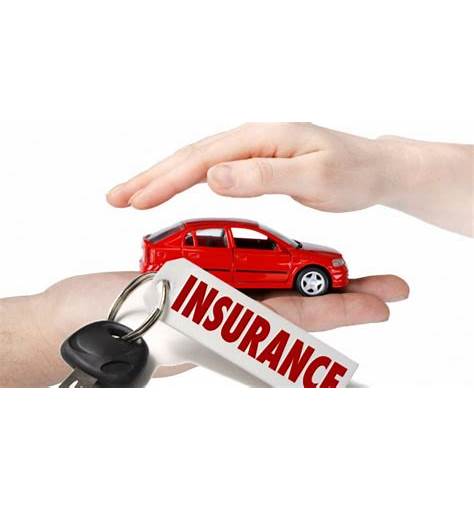
If you are considering buying a salvage car, it’s essential to know that getting insurance for it can be a challenge. Insuring a salvage car involves more than just getting basic insurance coverage. Many insurance companies aren’t keen on offering insurance coverage for a salvage car because of the risk involved. In this article, we’ll explore what you need to know about insuring a salvage car.
What is a Salvage Car?
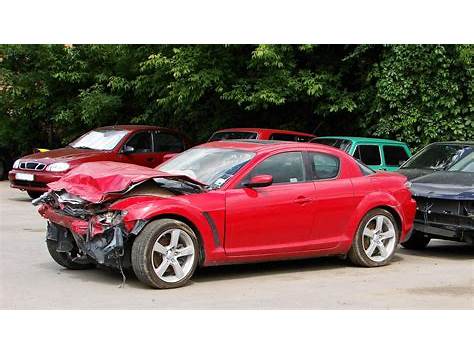
A car is considered salvage when it has been damaged severely, and the cost of repairing it exceeds the car’s actual worth. Salvage cars are also cars that have been written off by insurance companies as totaled. These cars may have salvage titles or rebuilt titles, which make them difficult to insure because of the inherent risk involved.
Basics of Insuring a Salvage Car
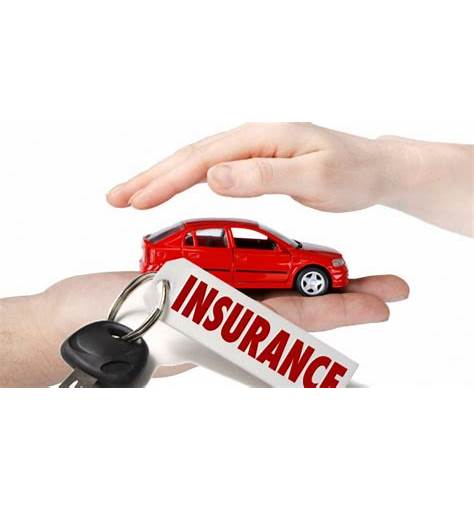
There is no standard insurance policy for a salvage car; however, it’s a requirement in most states that a salvage car has to be insured to get it on the road. In most cases, you’ll need to get comprehensive coverage for your salvage car instead of liability coverage. It’s important to keep in mind that comprehensive coverage is generally more expensive than liability coverage.
When it comes to insuring a salvage car, shopping around is important. You should get insurance quotes from different insurance companies and see what they can offer you. Additionally, you can get the car inspected by a mechanic, which can help you know the extent of damage and any other issues the car may have.
The Importance of a Rebuilt Title
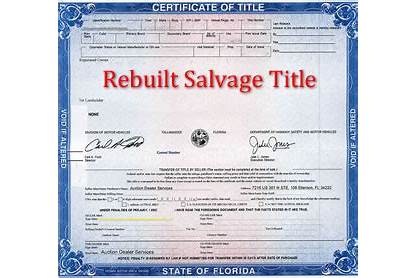
A rebuilt title is a new title given to a car after it has been declared a salvage car and rebuilt. A rebuilt title is an essential document when insuring a salvage car because it provides information on the extent of the damage, repairs, and if the car is now roadworthy. A rebuilt title also indicates that the car has passed an inspection in some states, and it is now fit to be on the road. Insurance companies will need to see this document when insuring your salvage car.
Factors that Affect the Cost of Insurance for a Salvage Car
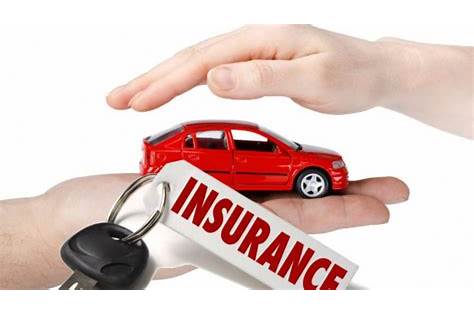
The cost of insuring a salvage car varies depending on several factors. The most significant factor is the extent of damage the car has. The more severe the damage and the cost involved in repairing the car, the higher the insurance premium will likely be. The age of the car also affects the premium, and the model and make of the car also play a role. Finally, the number of accidents or incidents the car has been involved in also affects the cost of insurance for a salvage car.
Conclusion
Insuring a salvage car is possible, but it requires doing some homework. You should research different insurance companies to see what they can offer you and get the car inspected by a mechanic to find out the extent of the damage and any other issues the car may have. Finally, you need to have all the essential documents, including a rebuilt title, when you approach insurance companies.
Where to Find Salvage Cars for Sale by Owner
If you are looking for a good deal on a car, buying a salvage car for sale by owner can be a great way to save money. A salvage car is a car that has been damaged in an accident or some other way and is no longer roadworthy. However, many of these cars still have usable parts and can be repaired and put back on the road.
There are several places where you can find salvage cars for sale by owner:
1. Online Marketplaces
You can find salvage cars for sale by owner on online marketplaces such as eBay, Craigslist, and Facebook Marketplace. These websites allow private sellers to post ads for their cars and connect with potential buyers.
When shopping for a salvage car online, be sure to read the seller’s description carefully and ask for additional photos if needed. It is also a good idea to research the value of the car in its current condition to ensure you are getting a fair price.
2. Salvage Yards
Another place to find salvage cars for sale by owner is at salvage yards. These yards specialize in buying and selling damaged cars and often have a wide variety of vehicles available for purchase.
Salvage yards may also allow you to search their inventory online, which can save you time and make it easier to find exactly what you are looking for. Just like when shopping for a car online, be sure to inspect the car carefully and ask for a vehicle history report to ensure there are no major issues that could impact its safety or performance.
3. Auctions
Many salvage cars are sold at auctions, where buyers can bid on the cars they are interested in. Auctions can be a great way to find a wide selection of salvage cars for sale by owner, but it is important to do your research before bidding.
Make sure you know the value of the car in its current condition and set a budget before attending the auction. You should also be prepared to pay for any repairs needed to make the car roadworthy again.
4. Word of Mouth
Finally, one of the best ways to find salvage cars for sale by owner is through word of mouth. Let friends, family members, and co-workers know that you are looking for a salvage car, and ask them to keep an eye out for any opportunities.
You may be surprised at how many people have connections to the salvage car industry and can help you find a great deal on a car. Just be sure to inspect any car before purchasing and do your research to ensure you are getting a fair price.
No matter where you decide to look for a salvage car for sale by owner, it is important to approach the process with caution and do your due diligence to ensure you are getting a safe and reliable car at a fair price.
Tips for Inspecting and Evaluating a Salvage Car before Buying
If you are in the market for a used car, buying a salvage car may seem like a great way to save money. Salvage cars for sale by their owners are usually priced lower than clean-titled cars. However, it is important to keep in mind that salvage cars have been damaged and repaired, which makes them more prone to problems in the future. Therefore, it is crucial to evaluate and inspect a salvage car before buying to ensure that you are getting a car that is safe and reliable. In this article, we will share with you some tips for inspecting and evaluating a salvage car before buying.
1. Get a Vehicle History Report
The first step in evaluating a salvage car is to get a vehicle history report. This will provide you with information about the car’s previous accidents, damage, and repairs. You can obtain a vehicle history report from services like Carfax or AutoCheck. Make sure to review the report carefully and look for any red flags, such as multiple accidents or undisclosed repairs that may indicate a poorly repaired car.
2. Inspect the Exterior of the Car
When inspecting the exterior of the car, look for any signs of dents, rust, or body filler. Make sure that the fenders, doors, and hood are properly aligned and that there are no gaps or inconsistencies. Take a closer look at the paint job and see if there are any cracks or peeling, which may indicate that the car was not repaired properly. Lastly, inspect the tires for any signs of wear or tear.
3. Check the Interior of the Car
When inspecting the interior of the car, look for any signs of water damage, such as moisture, mildew, or a musty smell. Check the seats, carpets, and headliner to see if they are in good condition. Look for any signs of wear or tear on the dashboard, controls, and upholstery, which may indicate that the car was poorly maintained. Finally, test all the buttons and controls to ensure that they are working correctly.
4. Test Drive the Car
Testing out a salvage car is crucial to determine if the car is safe and reliable. Before the test drive, check the oil, coolant, and brake fluid levels to ensure that they are at the appropriate levels. During the test drive, listen carefully for any unusual noises or vibrations. Observe how the car handles and make sure that the brakes, steering, and transmission are functioning properly. Finally, check to see if the air conditioning and heating systems are working.
5. Hire a Mechanic for a Pre-Purchase Inspection
Lastly, it is highly recommended that you hire a qualified mechanic to perform a pre-purchase inspection on the car. The mechanic can detect any potential issues that may not be visible during the visual inspection or test drive. They can also advise you on the car’s overall condition and the potential cost of repairs. While this may add to your expenses, it is a wise investment to avoid buying a car that may require costly repairs down the road.
Buying a salvage car can be a great way to save money, but it is crucial to inspect and evaluate the car prior to purchase to ensure that it is safe and reliable. Follow these tips, get a vehicle history report, inspect the car’s exterior and interior, test drive the car, and consider hiring a mechanic for a pre-purchase inspection. With a careful and thorough evaluation, you can find a salvage car that fits your needs and budget.

